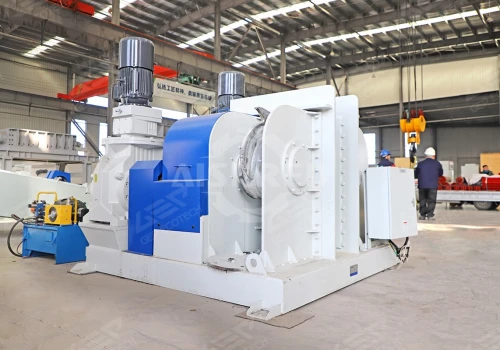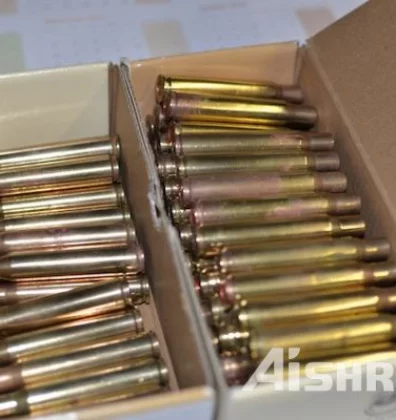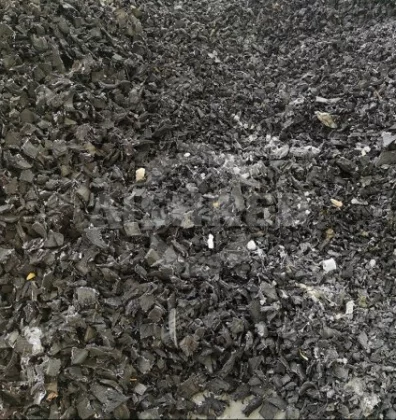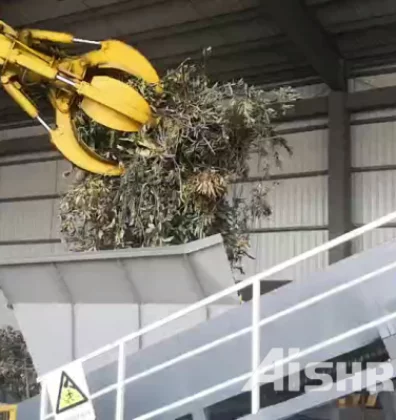In the Waste Tire Recycling industry, tire bead wire removal has always been a major challenge. To enhance durability and load-bearing capacity, tire manufacturers reinforce the bead area with large amounts of high-strength steel wires. While this improves tire performance, it also makes direct shredding and recycling significantly more difficult and costly. The strong bead wires accelerate wear on cutters of Waste Tire Shredders, increase maintenance frequency, and raise operating costs. To overcome these obstacles, the Tire Debeader was developed as a dedicated front-end solution.
What Is a Tire Debeader?
The Tire Debeader is a critical equipment in the waste tire pretreatment process, specifically designed for efficient bead wire removal. It is primarily used for large truck and OTR tires with diameters ranging from 800–1200mm.
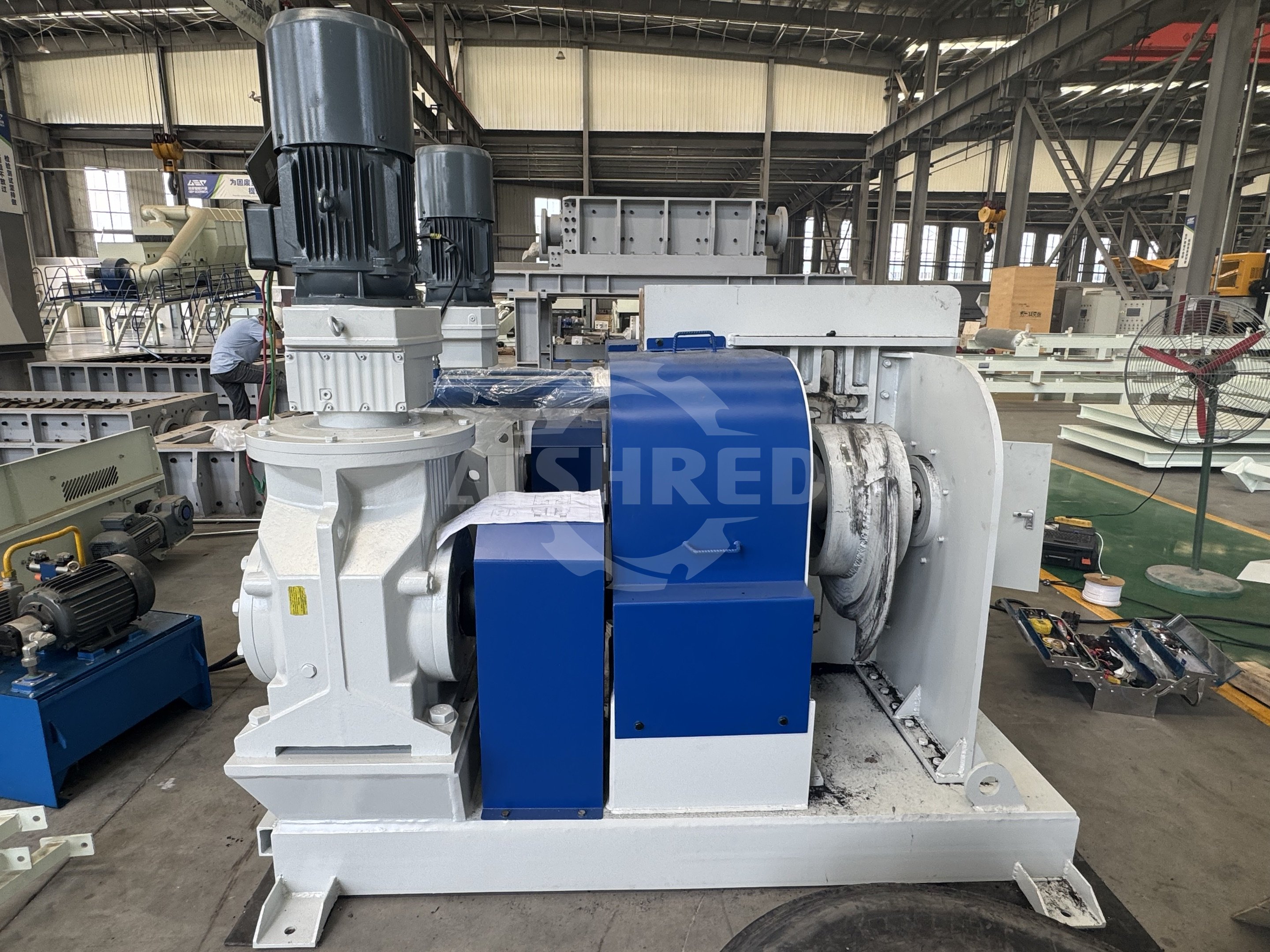
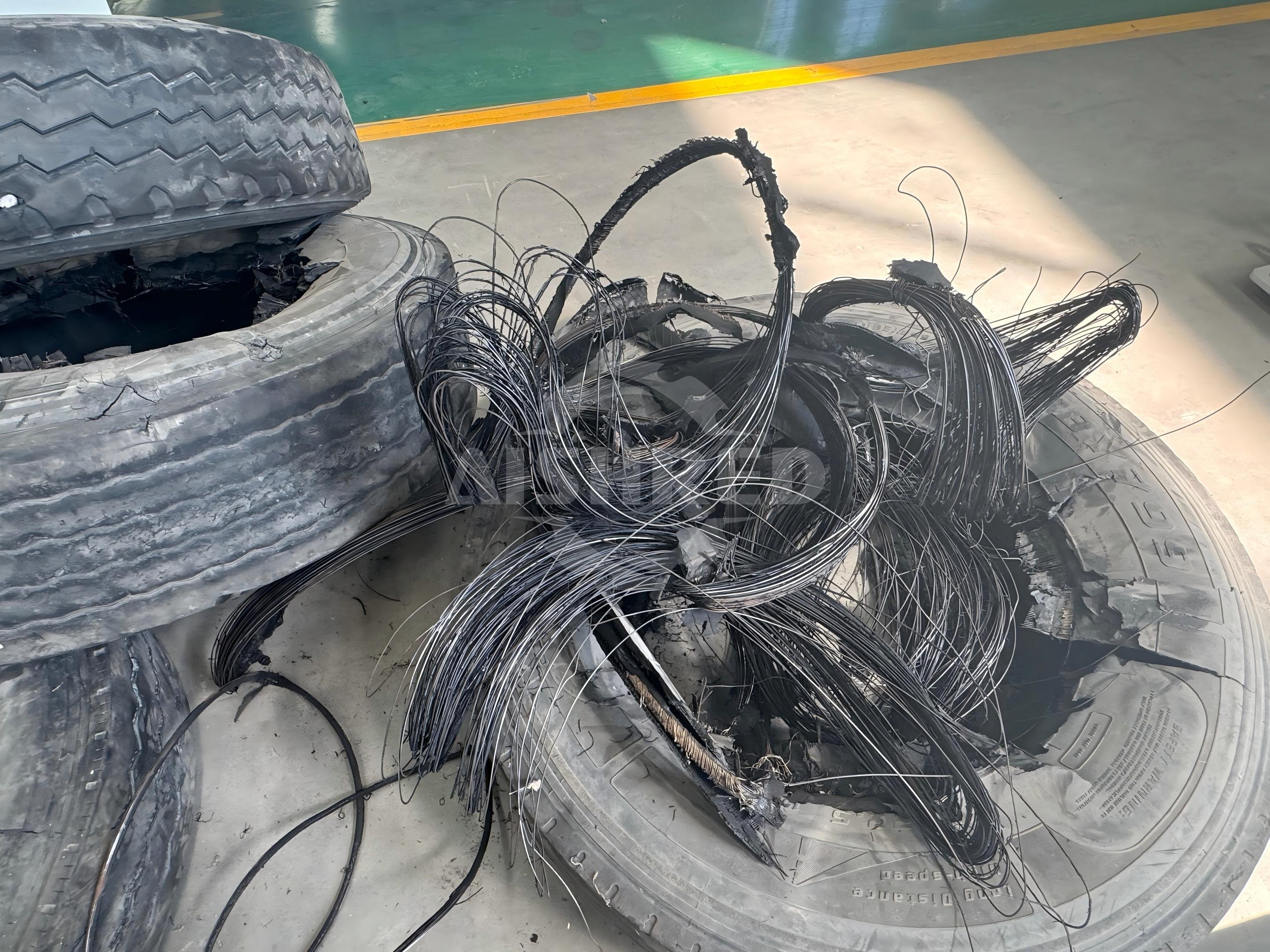
Bi-directional Tire Debeader and Tires with Bead Wires Removed
Based on the direction of extraction, Tire Debeaders can be categorized into two types: uni-directional and bi-directional models. While uni-directional tire debeaders are functional and suitable for basic extraction needs, with relatively low pulling efficiency, the bi-directional Tire Debeader has gained greater popularity among global customers. This preference stems from its superior performance, enhanced reliability, and greater cost-effectiveness, making it the preferred solution for efficient and continuous processing in large-scale operations.
Working Principle and Advantages of Bi-directional Tire Debeader
The Bi-directional Tire Debeader is the core highlight of this project. It uses a motor-driven or hydraulic-driven dual oil pump running at high speed to power the hydraulic cylinder, which drives a hook to firmly grip and extract the bead wires from the tire. With the assistance of a V-shaped pressure block, the wires are secured in place during pulling, preventing slipping or rebound, and ensuring safe and reliable operation.
Key Advantages
- High Efficiency: The dual transmission and dual-hook structure allows both sides of the tire to be processed simultaneously, making it 2 times more efficient than a single-hook machine.
- Compact Structure: Integrated base design, small footprint, easy transport and installation.
- Durability: Core components are made from special treated materials, ensuring wear resistance, high strength, and low maintenance costs.
- Safety: Equipped with automatic circuit protection and a safety bracket, ensuring operator safety.
- Automation: Built-in sensors and precise rail positioning enable smooth operation, reduce manual labor, and minimize reliance on operator proficiency.
Waste Tire Recycling Project in Australia
Recently, an Australian customer approached us to build an efficient waste tire recycling line. The raw materials mainly consisted of waste tires up to 1200mm in diameter, with truck and OTR tires accounting for nearly 2/3. The required design capacity was 4.5 tons per hour, with a final output size of 2''–3'', intended primarily for co-processing in cement kilns as alternative fuel.
The customer's key requirements were high automation, minimal labor input, and reliable equipment performance. To meet these needs, we delivered a customized solution that included:
- Bi-directional Tire Debeader
- Feeding Conveyor
- Waste Tire Shredder
- Discharge Conveyor
- Siemens PLC + Touchscreen Electrical Control Cabinet
The solution fully met the customer's requirements in terms of output capacity and discharge size, while offering a high degree of automation. The customer was very satisfied with the proposal and spoke highly of our Bi-directional Tire Debeader.
GEP ECOTECH—Your Trusted Tire Recycling Partner
As a professional manufacturer of Tire Recycling Plants, GEP ECOTECH provides reliable, efficient, and customized solutions for waste tire processing worldwide. From debeaders and shredders to complete tire recycling systems, we help our customers maximize resource recovery and achieve sustainable waste-to-value goals. Contact us today to learn more about how we can support your Waste Tire Recycling projects.

